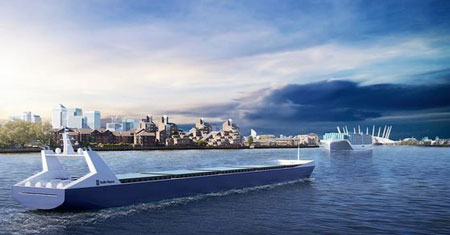
Self driving cars, whilst once a novel and entertaining idea have now become a regular news feature. The design and rigorous testing they are going through is all in an effort to see road safety improved by eliminating driving error.
In fact a recent report in manufacturing.net stated that in the 6 years and 1.9 million miles of testing by Google there have only been 14 accidents involving their self driving cars. Google say that none of the accidents were caused by their self driving cars. In 11 of the 14 accidents, the self driving car was rear ended, by distracted drivers.
So, could autonomous applications be applied to ships to improve efficiencies and also the level of CO2 emissions, which are twice that of the aviation industry? Could we see autonomous ships at sea? Rolls Royce think so.
Funded by Finnish technology company Tekes, Rolls Royce are heading up a 6.6m Euro project aiming to produce specifications and designs for the next generation of shipping solutions. With Hyundai and Accenture working to build a fleet of internet connected smart ships that can be remotely monitored and maintained, it’s not beyond the realms of possibility.
Many in the shipping industry would disagree but others, including Rolls Royce believe believe there could be a number of advantages in autonomous ships. With no need for crew, ships could be redesigned and become much more efficient.
The Advanced Autonomous Waterborne Applications Initiative will bring together ship designers, manufacturers and universities to explore and understand the economic, social regulatory and technological issues that will need to be considered if autonomous ships are to become a reality.
Running until 2017, the project will look at the overall business case, taking into account safety, security and operational implications of operating remotely operated ships.
The technological work stream, which will be led by Rolls-Royce, will encompass the implications of remote control and autonomy of ships for propulsion, deck machinery and automation and control, using, where possible, established technology for rapid commercialisation.
The Rolls Royce Blue Ocean team is responsible for research and development of future maritime technologies. The team aims to reduce operational costs, minimise emissions and enhance the earning capability of vessels by combining new technologies and innovative approaches to ship design.
It’s obviously very early days yet, but do you think self driving ships could become a reality and would the risk of collision, sinking etc. be any higher than it is already?
Image courtesy of Rolls Royce
This site uses Akismet to reduce spam. Learn how your comment data is processed.


 Mail:
Mail: 




Leave a Comments